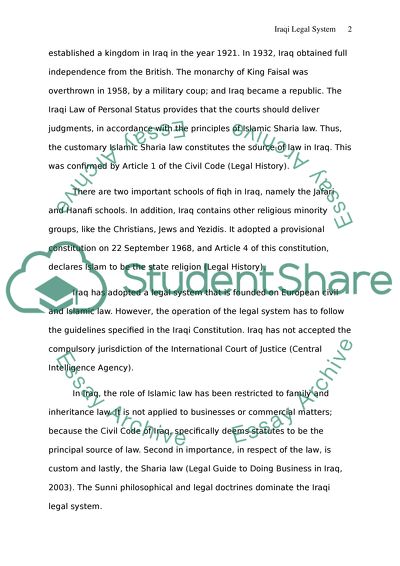Cite this document
(“Iraqi Legal System Essay Example | Topics and Well Written Essays - 1250 words”, n.d.)
Iraqi Legal System Essay Example | Topics and Well Written Essays - 1250 words. Retrieved from https://studentshare.org/miscellaneous/1559431-iraqi-legal-system
Iraqi Legal System Essay Example | Topics and Well Written Essays - 1250 words. Retrieved from https://studentshare.org/miscellaneous/1559431-iraqi-legal-system
(Iraqi Legal System Essay Example | Topics and Well Written Essays - 1250 Words)
Iraqi Legal System Essay Example | Topics and Well Written Essays - 1250 Words. https://studentshare.org/miscellaneous/1559431-iraqi-legal-system.
Iraqi Legal System Essay Example | Topics and Well Written Essays - 1250 Words. https://studentshare.org/miscellaneous/1559431-iraqi-legal-system.
“Iraqi Legal System Essay Example | Topics and Well Written Essays - 1250 Words”, n.d. https://studentshare.org/miscellaneous/1559431-iraqi-legal-system.


